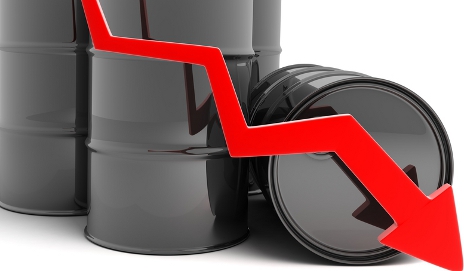Since December 2014, crude oil benchmark prices have fallen more than 25 percent because of a supply glut and slower economic growth worldwide. Prices for bonny light crude dropped Thursday low to $53 per barrel. One way that Nigeria can protect her oil revenue and manage the risks from crude oil commodities market swings is through Crude oil Hedging using derivatives instruments.
What is Crude Oil Hedging?
Crude oil Hedging involves locking in a price to buy or sell crude oil in the future. It is a form of insurance against adverse price movement in markets as we are currently experiencing in the global crude prices. Hedging is also employed in currencies, interest rates and stock indices, but it originated in the commodities market.
Why should Nigeria Hedge its Crude oil Export?
Countries that are exposed to oil price swing find hedging useful, a properly executed Crude oil hedging programme will ensure that the government can fund next year’s budget even if oil prices slump further.
Nigeria needs more than double of the current global crude oil price to balance its budget, which it was forced to benchmark on $53 per barrel following the continued slide in crude price.
Deloitte Global, in a new report entitled: ‘Oil and Gas Reality Check 2015’, says most members of the Organisation of Petroleum Exporting Countries require oil prices of about $100 per barrel to balance their domestic budgets and put the breakeven price for Nigeria at $122.
Mexico annually hedges the value of its crude oil exports, paying banks a premium to ensure predictable revenue for its federal budget.
The oil hedging programme by Mexico, considered the largest operation by a nation in commodities markets, is designed to protect vital crude export revenue from market volatility.
“The market slump forced Mexican lawmakers to trim the 2015 budget and drove up the price of the options that the government bought, to $773 million for 2015 from $543 million for the 2014 hedge.‘’ said The Finance Minister – Luis Videgaray.
How Nigeria can Hedge its Crude Oil revenue?
Crude oil hedging programmes generally involves the use of complicated financial instruments known as derivatives, the two common of which are Options and Futures.
Futures contracts have two sides: a long or buyer position, and a short or seller. An international oil producer worried that crude will fall from $60 a barrel to $50 might sell, or go short, in oil futures, locking in the sale price at $60. Conversely, An airline concerned about a future rise in the price of jet fuel might buy oil futures and take a long position. If crude jumps from $60 to $70 a barrel, the corresponding increase in the value of the airline’s futures position will help offset the higher price it will pay fuel suppliers.
Hedges can be costly. Mexico paid banks $773m for crude oil options to hedge its 2015 oil exports at a sale price of $76.40 per barrel. (The deal already appears worthwhile, since Mexico’s oil now fetches less than $50 on the spot market.)
Conclusion
Risk Management is an integral part of Nigeria crude oil export business, building and executing a hedging programme takes expertise and research, and it’s also important to get clear financial advice before taking a position. However complicated it appears initially, it’s worth taking a hedging programme to protect Nigeria’s oil revenue while ultimately helping main a balance federal budget.
By Abiola Forbes Jacobs

